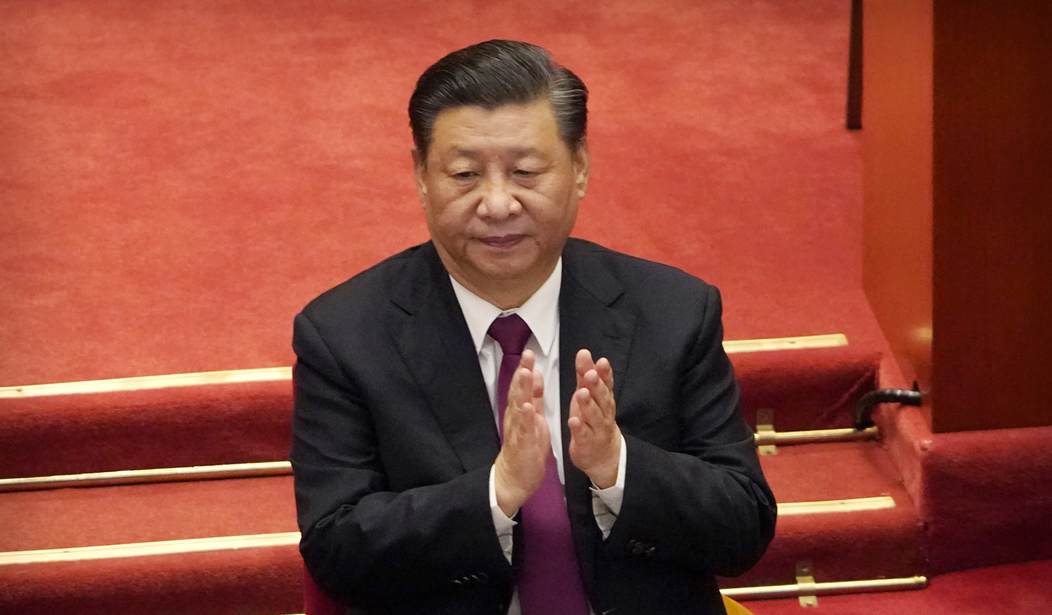Communist Chinese strongman Xi Jinping called on his country to make “greater efforts to construct China’s own discourse and narrative,” and similar efforts “to help foreign audiences understand what the Party is pursuing is nothing but the Chinese people’s well-being,” according to state-run media.
China’s official communist news agency, Xinhua, dryly headlined their report on Xi’s speech as a call for improving the country’s “international communication capacity.”
What that really means, of course, is more CCP influence over Western media outlets — particularly American media.
Math was never my strong suit, but what’s more than 110%? And what number comes after infinity?
Because if successful, that’s where Xi’s efforts are headed.
The most odious example of Communist China’s existing influence over the American media is Facebook.
Despite being banned on the mainland by the CCP’s “Great Firewall of China,” Facebook was happy to impose a virtual news embargo on Wuhan flu lab “escape” stories and speculation.
The embargo was enjoined by nearly every major American news outlet, preventing an honest discourse over what many now admit might be the case: that Communist China allowed an enhanced bat virus, either accidentally or with malicious intent, out of its lab.
“Possible Global Biological Warfare” should have been the headline in dozens of news stories over a year ago, but thanks to our complicit media, the discussion was squashed — to Beijing’s benefit.
The silliest recent example was pro-wrestler-turned-actor John Cena groveling to Beijing after inadvertently referring to Taiwan as a country.
What Cena said — in Mandarin, no less — was, “Taiwan is the first country that can watch ‘F9.'”
As you’re probably aware, both the Communist government on the mainland and the Republic government on Taiwan claim to be the one true government of both. But functionally, Taiwan has acted as its own country for decades and is mostly treated as such by other countries.
So what Cena said was the kind of slip of the tongue that sane authorities would let pass.
But Xi demanded (and got) the muscle-bound tough guy to grovel for the cameras.
But Communist China can’t take “I apologize, I apologize, I’m very sorry” and so on for an answer: Fast & Furious ticket sales in China plummet despite star John Cena’s apology for calling Taiwan a country.
Hollywood is so addicted to China’s dollars that they’ll be damn sure that not one more major movie premiere will feature another Cena Syndrome incident.
Xi said, “Jump!” Hollywood was already in the air before they could ask, “How high?”
Communist China had been wielding this kind of influence even before the 2012 comic-tragic semi-remake of a reboot of the so-bad-its-good ’80s teen action flick, Red Dawn.
Let’s take this one step at a time.
In the original, 1984 version of Red Dawn, an isolated United States is invaded by Communist forces led by the Soviet Union. A half-dozen or so Colorado teenagers band together to take guerilla actions against the local occupiers, mostly Cuban soldiers with Russian advisors.
The remake, set in the Pacific Northwest, was to tell a similar tale, only with Communist Chinese taking the place of the defunct USSR.
Beijing squawked so loud before the release that the producers went back to their completed film and CGI’d all Chinese insignias with North Korean, redubbed the dialogue, etc. All mentions of Communist China were scrubbed.
What was sure to be a really bad movie somehow became worse, because… what, we’re supposed to believe that North Korea was going to occupy Spokane, Washington?
Portland, maybe. But not Spokane.
The film flopped anyway, but the message was sent: Don’t portray the Communist Chinese as bad guys.
Then there’s Google, whose ubiquitous search engine, news aggregator, and YouTube video hosting service have the ability to squash any …uncomfortable… news reports or chatter.
Gordon Chang reported more than two years ago that “Google maintains arrangements that it either knows or should know directly benefit the Chinese military.”
Google makes a lot of money in China, which might account for why YouTube spent the last year suppressing any talk about the Wuhan virus that might have made China look bad. I had several of my Right Angle segments for Bill Whittle either shadow-banned or demonetized (usually both) for doing just that.
I could go on, with examples both old and new, but the point is already made.
When Xi demands more influence over the American media, it would be like me mixing a record fifth round of margaritas on Taco Tuesday: Pal, haven’t you had enough already?










